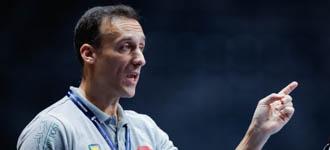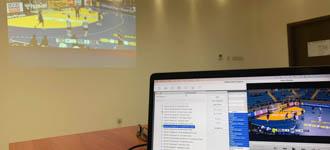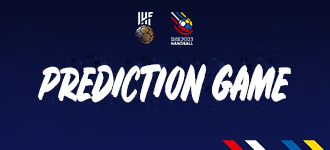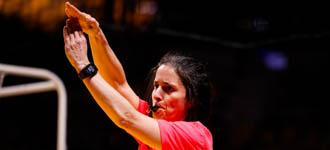‘The game is evolving’– US analyst Sainz at Poland/Sweden 2023
30 Jan. 2023
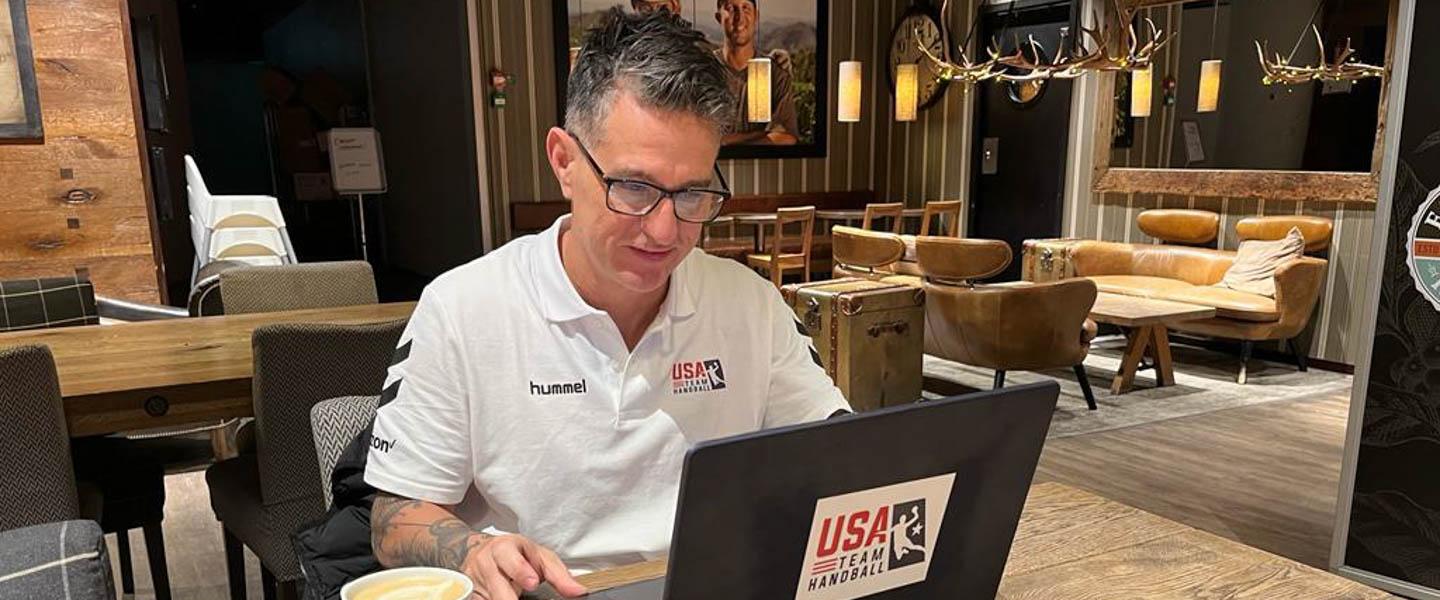
Tactics, data, formations, statistics – sports all over the world have so much to analyse it can be hard to know where to start and what to use.
Thankfully, head coaches at the 2023 IHF Men's World Championship had a 'team behind the team' to help them, and one key member of that team is the analyst.
ihf.info hears from the United States of America's Julio Sainz and Saudi Arabia's Mark Hawkins in their own words about the fascinating role.
In part 1 of 2, we speak to Julio, an IHF A Licence holder, IHF CCM Lecturer and Head Technical Coach at the US Team Handball Federation.
He has coached at various IHF World Championships – with the Puerto Rico women's team, the junior men's USA team and now the senior men's team.
He has also coached at the Pan American Games, coached with Colombia and Costa Rica, plus various teams in the US, where he is a two-time national champion. Sainz has also worked as an analyst for the USA beach handball teams.
ihf.info: How do you define the role of an 'Analyst'?
Someone who obtains information about their team and their rivals. In the world of modern sport, analysts are people who are students of the game, coaches and assistant coaches themselves. All professional teams have a full team of analysts.
Analysis is not just for matches and competitions. It's also an important tool for effective planning; you set your goals and your benchmarks. Everything is based on performance analysis. It's recognised as the key to success in modern sports, and that's important.
With so much technology available, how do you decide what to use and not to use?
I normally use Dartfish and XPS. Each one of them gives me a different way of obtaining information. I use Dartfish for positional analysis and XPS for quick, less detailed information. I also use Nacsport for real-time analysis to be sent to the bench.
How do you decide what data to use and not to use?
There's so much information available for our teams and our rivals that we can use it to our advantage – but it works both ways, of course – they have the same information which they can use to their advantage as well.
I also have performance indicators in data, which is a must for me. For example, the impacts on the defence, impacts on the goal, what the opening attacks are for every single positional attack, how their transitional game is, how do they play in inferiority, how do they play in superiority, what type of special tactics they use.
But I am a servant of the coach and the US men's coach here, Robert Hedin. For example, if he only wants to see the results of the attack openings and special tactics, I give him that; he decides what to use and what not to use.
What is your relationship like with the players?
They normally come to me for information. Some of them want their actions immediately, and some of them later on during the day or during the week. But the bottom line is that it's available for them. I always offer myself as a source of information. I normally don't talk too much about tactics with them. It's more about the technical aspects; tactics is something that Robert normally deals with.
During live matches of your team, what are you doing?
We use earpieces. I'm listening to what Robert is saying. It helps me to understand where he is tactically. He might ask me to select a clip and I'll have them ready for him at half-time or after the match.
I don't try to interact much with the bench unless I see or hear something that I can recommend. Handball is such a fast sport that you don't have that much time to talk; you just react. If we identify something that needs to be improved, then we'll point it out and show it to the athletes, and from there we'll go.
What happens at half-time?
Meaningful information is normally presented to Robert and the athletes during half-time. We communicate and then I provide clips of the actions for review and corrections.
For example, against Bahrain, we identified a situation that was not identified during our pre-match analysis. We then showed this to our defence at half-time. I don't sit on the bench, but if the network and technology in the arena allow it, I can send clips of situations directly to it in real-time.
Information has to be quick, succinct and meaningful. The adrenaline is so high for athletes that it's difficult to show information on the raw like that.
What is your relationship like with coach?
The relationship is fantastic and we get along really well. I look up to him a lot and it's great to work with someone with so much experience. He's not only shaping my career as an analyst, but also helping me to become a better assistant coach and coach. He always has a solution for everything, and I really like how he manages the team. It's great.
What advice would you give someone thinking of becoming an analyst?
This is the time to do it. Not only because it's a growing, developing position, but it's also a great tool for anyone who wants to become a coach, international coach or professional coach. Analysts are becoming more and more important. The game is evolving. The work can be a long, tiring and tedious process, but it's very rewarding. The benefits of what we have done have shown in the USA performance at this World Championship.
Schedule
During the day leading to match I normally participate in all the team activities. We are big on inclusion and unity in our team culture, so I must plug in my time around it, often analysing during practice, bus rides, etc.
Normally, I wake up around 4 am and begin to work on the rival team analysis. This means the coach can have it before the video session of the day (often twice a day). I don't stop working until everything is done. That includes daily analysis of possible future rivals.
During the preliminary round of Poland/Sweden 2023 I worked both Group G and H. I have long days, often working around the clock. While everyone is resting, I am working, but that is the way it should be; my team should not be worried about not having the information ready, and our coaches should rest and recover too. I am a coach too, so I know what it means to be fresh and rested.
My daily routine includes sourcing matches, downloading them, compressing them and creating folders with the information. For example, on a day off earlier this week, I was working on downloading Argentina, Brazil, Chile and Uruguay. It never stops.
On a match day, immediately after we arrive at the venue, I set up my computer, camera and two iPads and then test the network and make an analysis call so when the match starts, we are ready.
During the matches, we communicate about reviewing information and/or how things are looking from my perspective. When the match is over, everything starts again.
I also ensure that we disseminate all available information to the players (video clips of individual and rival performances for the players' review – especially goalkeepers – with the matches also being uploaded to our own platform).



